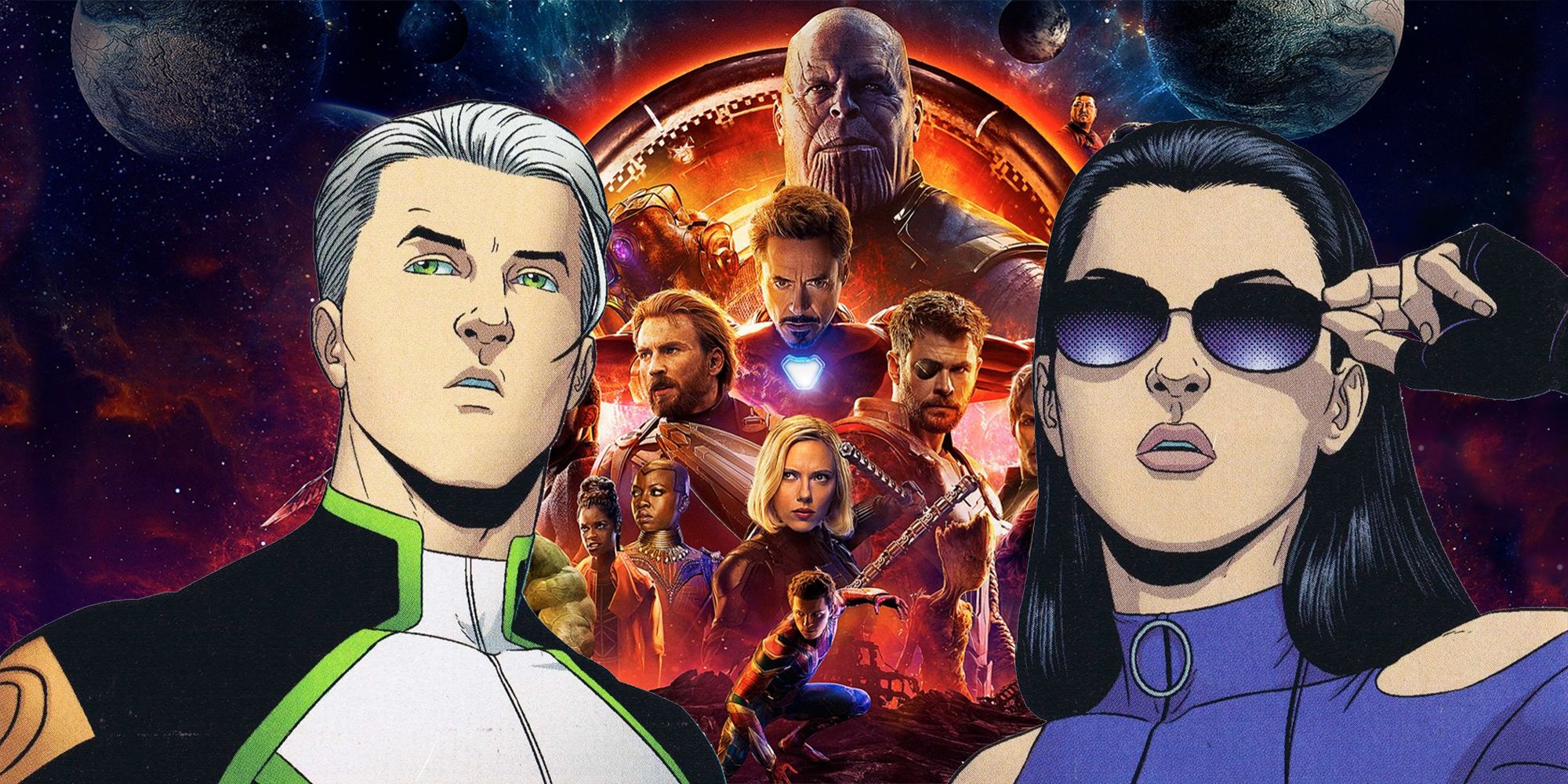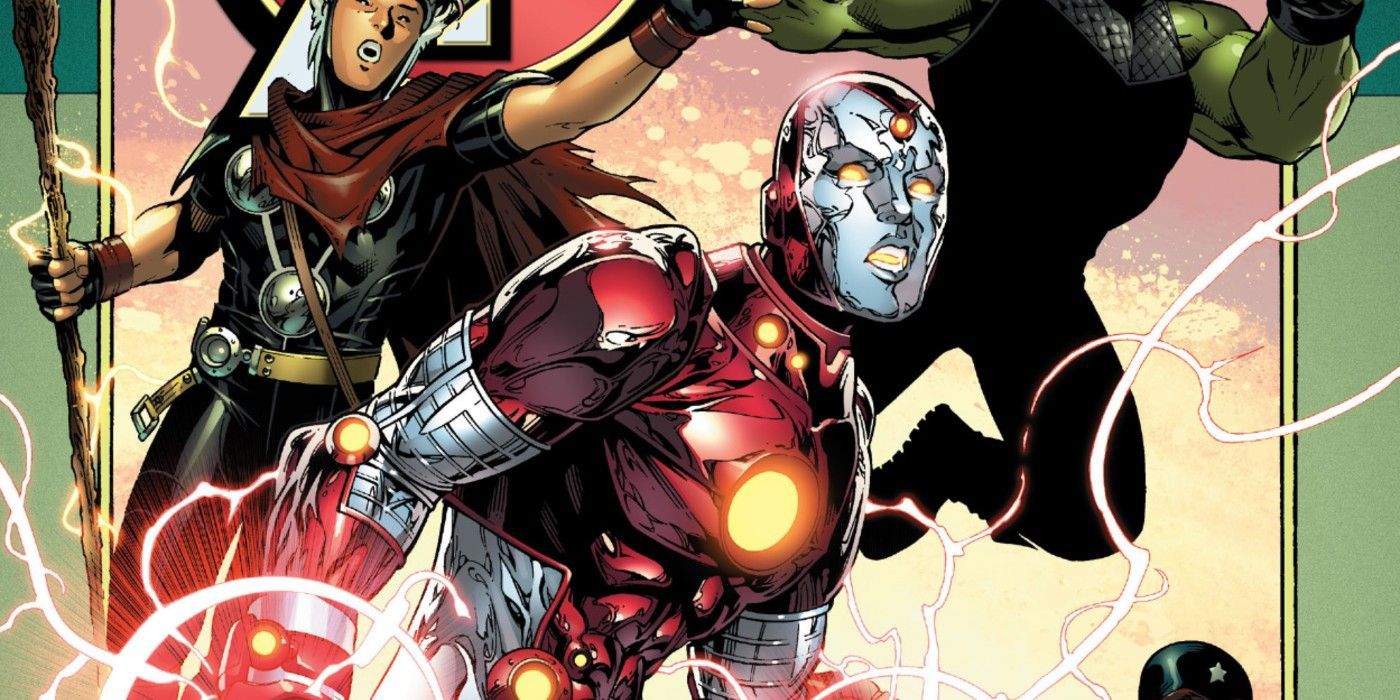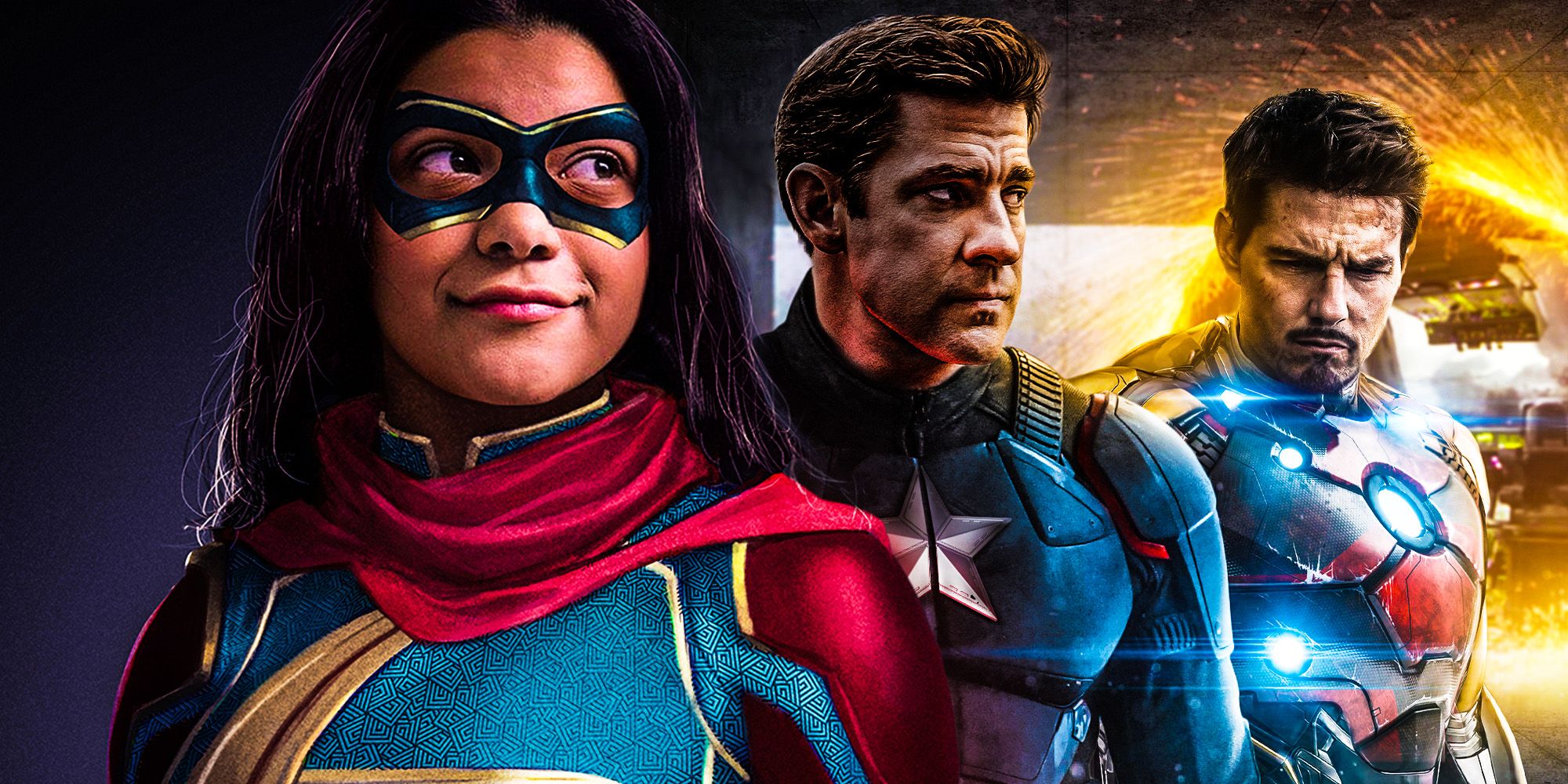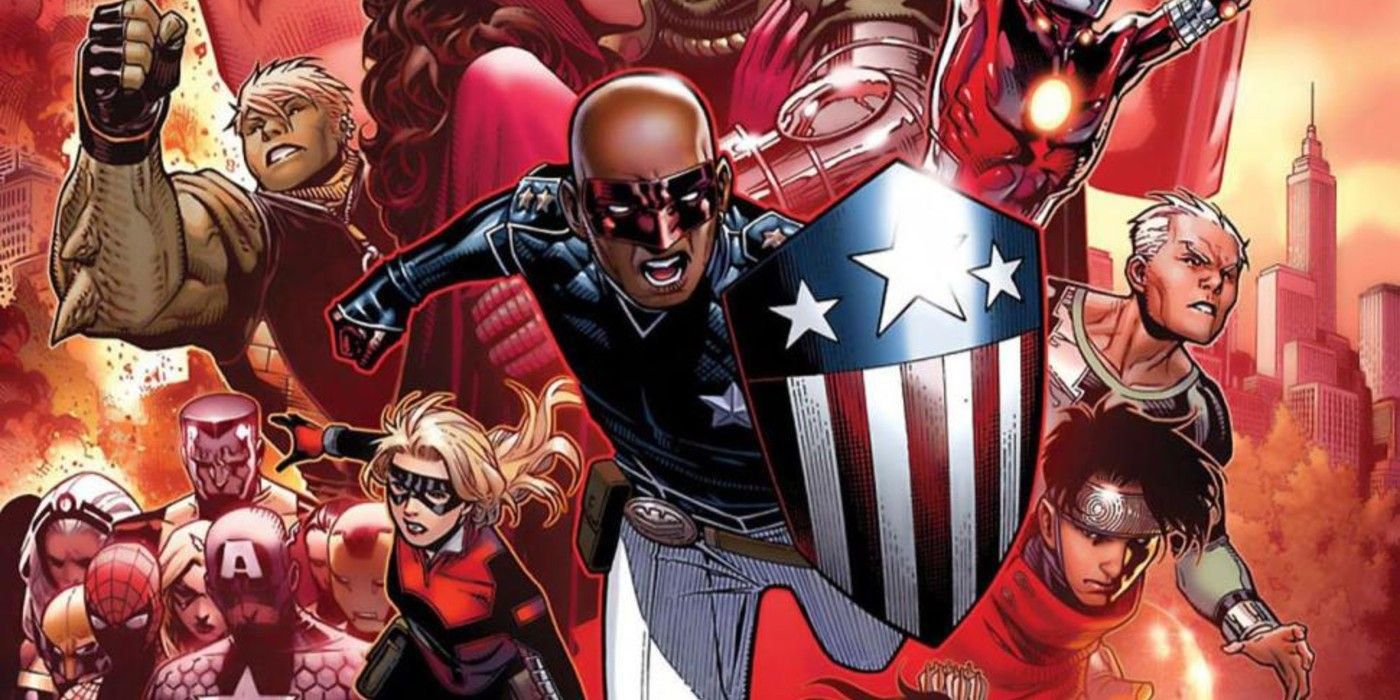The Young Avengers is likely the next big saga for the Marvel Cinematic Universe following the Multiverse Saga, but by the time it arrives, the Young Avengers may be too late to be relevant. There is little doubt that the MCU's current main arc is the multiverse, after being touched on in WandaVision, being the focus of Loki and looking to feature prominently in both Spider-Man: No Way Home and Doctor Strange in the Multiverse of Madness. Many have also noticed that laced between all the MCU shows and movies in development is the slow formation of the Young Avengers team. The plan appears to be to assemble the Young Avengers after the plots of the current saga has concluded; however, this is the wrong order for events if the MCU wants to maintain its media dominance because a multiverse fundamentally undermines the Young Avengers as the inheritors of the MCU.
Each of the Disney+ shows has done the leg-work to bring one or two of the Young Avengers into the MCU; between Speed and Wiccan in WandaVision, Kid Loki (and something of an introduction for Iron Lad) in Loki, Kate Bishop taking front and center in the upcoming Hawkeye, and establishing an origin for the Patriot Eli Bradley in The Falcon and the Winter Soldier, there hasn't been a MCU Disney+ show that hasn't directly added to the Young Avengers roster. This trend will continue: Riri Williams (Ironheart) is to be introduced in Black Panther: Wakanda Forever before appearing in her own Ironheart series for Disney+, and Kamala Khan (Ms. Marvel) will also be in her own Disney+ show Ms. Marvel as well as appear in The Marvels. Both of them are assumed to be part of a younger team of heroes even if they aren't Young Avengers in the comics, and all signs are pointing to them joining the Young Avengers. It seems the only Young Avenger not featuring in or getting their own Disney+ series is Cassie Lang aka Stature, who was introduced through a combination of Ant-Man and Avengers: Endgame.
At this point, a solo Marvel superhero film is not enough: the bar has been set high by previous films, and now any Marvel movie must connect not only to a larger universe of characters but to a larger overarching plot. MCU's legacy planning has had to be clever. Like the Infinity Stones had their pay-off in Avengers: Infinity War and Endgame, the Young Avengers have been scattered throughout the MCU already and will have their pay-off coming together to inherit the mantle of their mentors. The Young Avengers are the only group ready to be the face of the new MCU, even if, like the Maximoff twins Billy and Tommy, introduced by WandaVision, they have some growing to do. But there's a problem: a multiverse story arc has audiences looking backwards, establishing an over-dependency on earlier characters who, if they are thought of as the MCU, will then fade the MCU away as those key actors leave their roles.
Why The MCU's Young Avengers Should Have Come First
The Young Avengers inheriting the MCU is a necessary matter of succession — not just in-universe, but for the franchise. Actors will age and many will no longer be able to convincingly continue to portray their MCU characters, or simply may want to retire from stunt-heavy work. Avengers: Endgame wrote a satisfying end to both Captain America and Iron Man. Falcon and the Winter Soldier moved the story of Captain America away from Steve Rogers specifically. Yet, just as audiences should be getting used to Sam Wilson becoming the new Captain America, What If...? highlights returning or alternate MCU characters, not new ones.
Multiverse storylines push the narrative onto previous events and characters at the expense of the new. What If...? reminds audiences of the heroism of Steve Rogers in an alternate form, provides another glimpse of a very Robert Downey Jr. Iron Man eating doughnuts, and reimagines scenes or whole films with quirky twists. Having legacy characters return speaking many of the same lines they did in older MCU movies, or with slight variations to their character, or as a zombie, glorifies events that already happened in the MCU. Iron Man may have died in Avengers: Endgame, but he still gets new adventures in What If...?. To survive, the franchise needs to move on, but the setup of the Young Avengers is undermined by the MCU's multiverse narrowing attention on what should at this point be a wider universe.
The Problem With The MCU Multiverse As Phase 4
The problem with a multiverse as the overarching plot in the MCU is timing. If a multiverse followed after the Young Avengers formed and gained steam as the new MCU central team of heroes, a multiverse arc would then be a welcome way to revisit legacy characters that haven't been seen in a long time, and enjoy them again. With the multiverse up first, however, it becomes less likely that new characters like the Young Avengers will be established and embraced by a wider audience. The frequent character deaths in What If...? are banking on the love of legacy characters, and ignoring the new ones. This order of events increases the risk that the MCU might fail to bridge its popularity into a new era of storytelling.
The MCU has effectively been on a single trajectory from its inception, and regardless of how Marvel internally orders its phases, the whole process of Iron Man to Black Widow has been one big story. The real test for the MCU will be to see if it can make people care about a Marvel universe without a Captain America or an Iron Man. For the MCU's future, it's vital to have an established Patriot and an Iron Lad setup instead. The problem is that it needs to happen after the Infinity Saga — not after a multiverse arc. The window to pass that baton is narrow, and there are already signs that the established characters have stayed too long and become too established as the MCU itself, instead of just being part of the MCU.
Why It May Already Be Too Late For MCU Young Avengers
The controversy over MCU live-action actors not reprising their acting roles for voice roles for What If...? is a bad sign for the legacy planning of the MCU. It indicates that what is thought of as the MCU is not a wide collection of superheroes in a shared universe, but particular actors' portrayals of particular characters, like Robert Downey Jr. as the perfect Iron Man. It is fragile for the future of the MCU to be hung up on Robert Downey Jr. as the only possible Iron Man, or for there being no MCU without an Iron Man. If the MCU can't get away from its earlier characters and the actors portraying them, then as the actors age out of their roles there will be no MCU left. With every step forward into a multiverse, the MCU is strengthening the association between the brand and those specific characters and their actors, which will make it harder for audiences to care about new characters like the Young Avengers.
The course now will have to see an established character like Spider-Man guiding the young heroes instead of establishing a Young Avengers that would have mirrored their predecessors, but that may be too little, too late. The Young Avengers may be ready to assemble in the MCU, but Marvel seems determined to revisit old content with its multiverse, perhaps trying to squeeze the last bits of interest out of Captain America, Iron Man, and other characters before their popularity dies from overuse. The Young Avengers, poised and eager, may have already missed their best window of opportunity in the Marvel Cinematic Universe.










